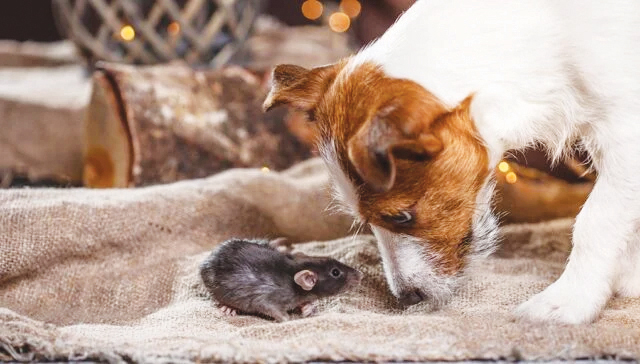RECENT reports from pest control operators suggest a noticeable increase in mouse activity across parts of Sydney, including areas close to home. Urban development, unpredictable weather patterns, and easily accessible food sources all contribute to this surge. As a result, many households are reaching for rat and mouse baits to manage infestations—but these products pose a serious threat to the health of our pets.
Why Are Rodents on the Move?
Construction and urban sprawl are displacing mice and rats from their natural habitats, forcing them into homes, sheds, and garages in search of food and shelter. Weather changes—such as heavy rains or prolonged dry spells—can also drive rodents indoors. Good sanitation practices, securing food sources, and sealing entry points are essential for preventing infestations.
The Hidden Danger of Rodent Baits
While rat baits can be effective at controlling rodent populations, they also present a high risk of poisoning for curious cats and dogs. Pets can be affected either by directly ingesting the bait or by eating rodents that have consumed it.
There are two major types of rodent baits:
• First-generation anticoagulants (e.g., Warfarin in Ratblitz) require repeated ingestion over several days to be fatal.
• Second-generation anticoagulants (e.g., Brodifacoum in Talon and Ratsak) are much more potent and can be deadly with just one dose.
These poisons work by depleting the body’s vitamin K reserves, which are essential for blood clotting. It can take 1 to 5 days for symptoms to appear, making early detection and treatment vital.
Signs of Rat Bait Poisoning
• Pale gums or small red spots on the gums
• Lethargy
• Unexplained bruising
• Blood in urine or stools
• Bleeding from the nose or prolonged bleeding from wounds
• Vomiting or diarrhoea
• Laboured breathing
• Seizures or muscle tremors
If you suspect your pet has eaten bait—or even if you find a damaged bait box—it’s crucial to seek veterinary attention immediately. Bring the packaging with you, as knowing the active ingredient helps determine treatment.
Treatment and Prevention
Treatment depends on the timing and severity of ingestion. Your vet may run blood clotting tests and prescribe vitamin K therapy for up to 30 days. In severe cases, pets may need hospitalisation or blood transfusions. To protect your pets, avoid loose bait pellets. Always use tamper-proof bait stations placed well out of reach of animals and children.
If you’re concerned your pet may have come into contact with rodent bait, contact the team at Orchard Hills Veterinary Hospital on (02) 4736 2027 for prompt advice and care.






